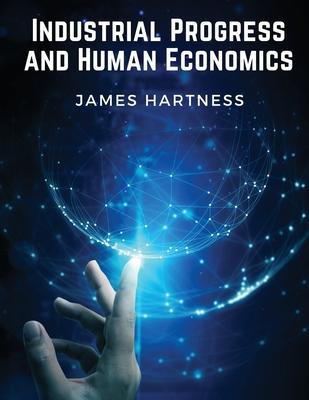"Industrial Progress and Human Economics" is a book authored by James Hartness, an American mechanical engineer, inventor, entrepreneur, and politician. Published in 1925, this book reflects Hartness’s views on the intersection of industrial development, economic progress, and human welfare.
Hartness was a prominent figure in the early 20th-century American industrial landscape, known for his innovations in machine tool technology and his role as the Governor of Vermont. In "Industrial Progress and Human Economics," he explores the relationship between industrialization and societal well-being, offering insights into how economic progress can be harnessed to improve the lives of individuals and communities.
The book delves into various aspects of industrial progress, including technological innovation, productivity growth, and the organization of labor. Hartness emphasizes the importance of efficiency and innovation in driving economic growth, arguing that technological advancements are essential for improving living standards and expanding economic opportunities.
At the same time, Hartness recognizes the potential social and environmental consequences of unchecked industrialization. He advocates for a balanced approach to economic development that takes into account the needs of workers, the preservation of natural resources, and the promotion of social equity.
Central to Hartness’s vision of "human economics" is the idea that economic progress should serve the broader interests of society, rather than merely maximizing profits for a select few. He calls for policies and practices that prioritize the well-being of workers, promote social justice, and foster a sense of community and solidarity.
Throughout the book, Hartness draws on his own experiences as an engineer and businessman to illustrate his arguments, offering practical examples of how industrial progress can be aligned with human welfare. He also reflects on the role of government and public policy in shaping the trajectory of economic development, advocating for proactive measures to address social and economic challenges.
Overall, "Industrial Progress and Human Economics" presents a holistic and forward-thinking perspective on the relationship between industrialization, economic growth, and human flourishing. Hartness’s insights remain relevant today, offering valuable lessons for policymakers, business leaders, and scholars interested in promoting sustainable and inclusive economic development.

 看圖書介紹
看圖書介紹










